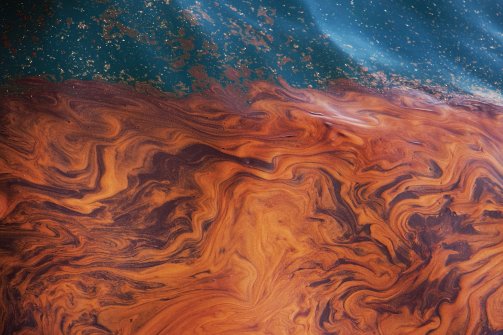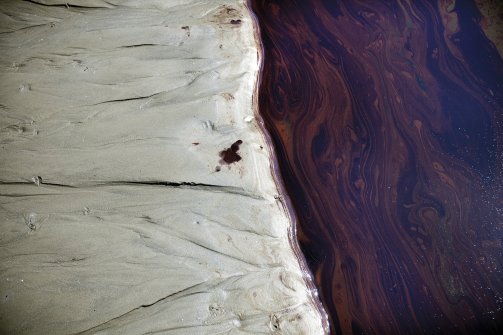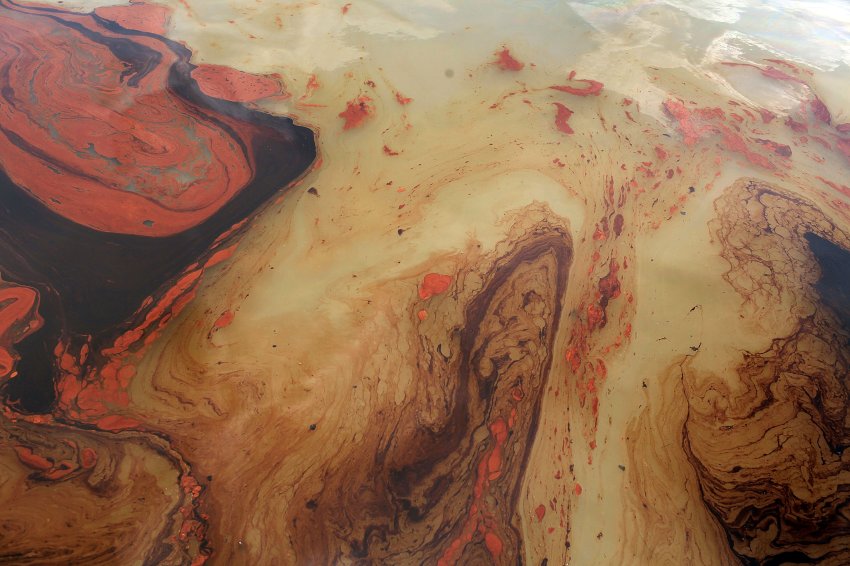
New investigative piece from Newsweek.
---
What BP Doesn’t Want You To Know About The Gulf Spill
Newsweek Special Report
It Was Much Worse Than We Thought
The 2010 Gulf of Mexico oil spill was even worse than BP wanted us to know.
"It’s as safe as Dawn dishwashing liquid." That’s what Jamie Griffin says the BP man told her about the smelly, rainbow-streaked gunk coating the floor of the “floating hotel” where Griffin was feeding hundreds of cleanup workers during the BP oil disaster in the Gulf of Mexico. Apparently, the workers were tracking the gunk inside on their boots. Griffin, as chief cook and maid, was trying to clean it. But even boiling water didn’t work.
“The BP representative said, ‘Jamie, just mop it like you’d mop any other dirty floor,’” Griffin recalls in her Louisiana drawl. Griffin did as she was told: “I tried Pine-Sol, bleach, I even tried Dawn on those floors.” As she scrubbed, the mix of cleanser and gunk occasionally splashed onto her arms and face. Within days, the 32-year-old single mother was coughing up blood and suffering constant headaches. She lost her voice. “My throat felt like I’d swallowed razor blades,” she says.
Like hundreds, possibly thousands, of workers on the cleanup, Griffin soon fell ill with a cluster of excruciating, bizarre, grotesque ailments. By July, unstoppable muscle spasms were twisting her hands into immovable claws. In August, she began losing her short-term memory. After cooking professionally for 10 years, she couldn’t remember the recipe for vegetable soup; one morning, she got in the car to go to work, only to discover she hadn’t put on pants. The right side, but only the right side, of her body “started acting crazy. It felt like the nerves were coming out of my skin. It was so painful. My right leg swelled—my ankle would get as wide as my calf—and my skin got incredibly itchy.”
COREXIT - SAFE FOR ALL LIVING THINGS
BP - "It's as safe as Dawn dishwashing liquid."
“These are the same symptoms experienced by soldiers who returned from the Persian Gulf War with Gulf War syndrome,” says Dr. Michael Robichaux, a Louisiana physician and former state senator, who treated Griffin and 113 other patients with similar complaints. As a general practitioner, Robichaux says he had “never seen this grouping of symptoms together: skin problems, neurological impairments, plus pulmonary problems.” Only months later, after Kaye H. Kilburn, a former professor of medicine at the University of Southern California and one of the nation’s leading environmental health experts, came to Louisiana and tested 14 of Robichaux’s patients did the two physicians make the connection with Gulf War syndrome, the malady that afflicted an estimated 250,000 veterans of that war with a mysterious combination of fatigue, skin inflammation, and cognitive problems.
Meanwhile, the well kept hemorrhaging oil. The world watched with bated breath as BP failed in one attempt after another to stop the leak. An agonizing 87 days passed before the well was finally plugged on July 15. By then, 210 million gallons of Louisiana sweet crude had escaped into the Gulf of Mexico, according to government estimates, making the BP disaster the largest accidental oil leak in world history.
Yet three years later, the BP disaster has been largely forgotten, both overseas and in the U.S. Popular anger has cooled. The media have moved on. Today, only the business press offers serious coverage of what the Financial Timescalls “the trial of the century”—the trial now under way in New Orleans, where BP faces tens of billions of dollars in potential penalties for the disaster. As for Obama, the same president who early in the BP crisis blasted the “scandalously close relationship” between oil companies and government regulators two years later ran for reelection boasting about how much new oil and gas development his administration had approved.
Such collective amnesia may seem surprising, but there may be a good explanation for it: BP mounted a cover-up that concealed the full extent of its crimes from public view. This cover-up prevented the media and therefore the public from knowing—and above all, seeing—just how much oil was gushing into the gulf. The disaster appeared much less extensive and destructive than it actually was. BP declined to comment for this article.
That BP lied about the amount of oil it discharged into the gulf is already established. Lying to Congress about that was one of 14 felonies to which BP pleaded guilty last year in a legal settlement with the Justice Department that included a $4.5 billion fine, the largest fine ever levied against a corporation in the U.S.
What has not been revealed until now is how BP hid that massive amount of oil from TV cameras and the price that this “disappearing act” imposed on cleanup workers, coastal residents, and the ecosystem of the gulf. That story can now be told because an anonymous whistleblower has provided evidence that BP was warned in advance about the safety risks of attempting to cover up its leaking oil. Nevertheless, BP proceeded. Furthermore, BP appears to have withheld these safety warnings, as well as protective measures, both from the thousands of workers hired for the cleanup and from the millions of Gulf Coast residents who stood to be affected.
The financial implications are enormous. The trial now under way in New Orleans is wrestling with whether BP was guilty of “negligence” or “gross negligence” for the Deepwater Horizon disaster. If found guilty of “negligence,” BP would be fined, under the Clean Water Act, $1,100 for each barrel of oil that leaked. But if found guilty of “gross negligence”—which a cover-up would seem to imply—BP would be fined $4,300 per barrel, almost four times as much, for a total of $17.5 billion. That large a fine, combined with an additional $34 billion that the states of Louisiana, Alabama, Mississippi, and Florida are seeking, could have a powerful effect on BP’s economic health.
Yet the most astonishing thing about BP’s cover-up? It was carried out in plain sight, right in front of the world’s uncomprehending news media including, I regret to say, this reporter.
Continue reading at Newsweek Daily Beast...
Now Watch This
Pulitzer Prize winner Mark Fiore's take on the BP spill.
---
Another Event BP Would Rather You Forget
BP Texas City Disaster
BP's Texas City refinery that exploded due to negligence and disregard for safety regulations. BP has had well over 700 willful violations of safety code annually and Shell, Arco, Chevron etc have all had less than 10.
http://en.wikipedia.org/wiki/Texas_City_Refinery_explosion

Slideshow:

